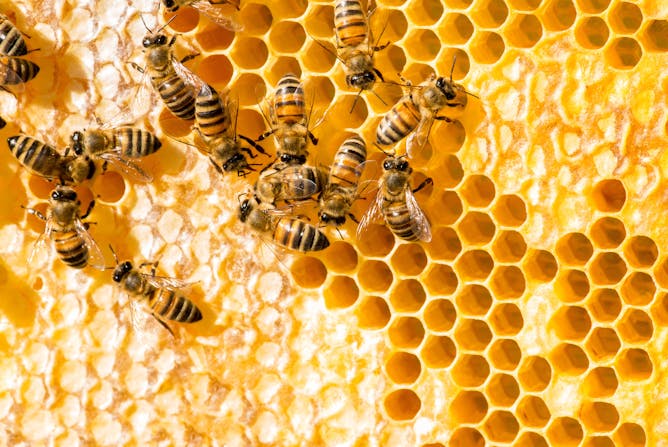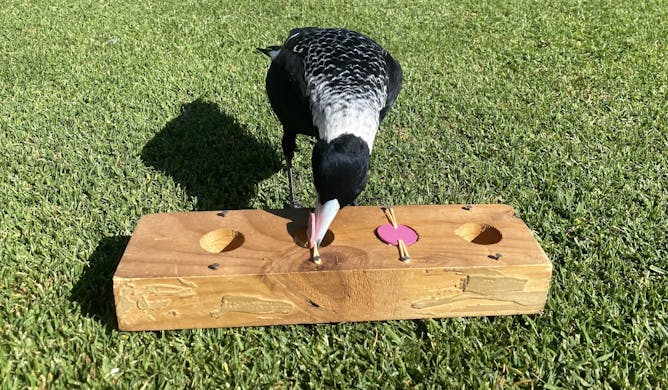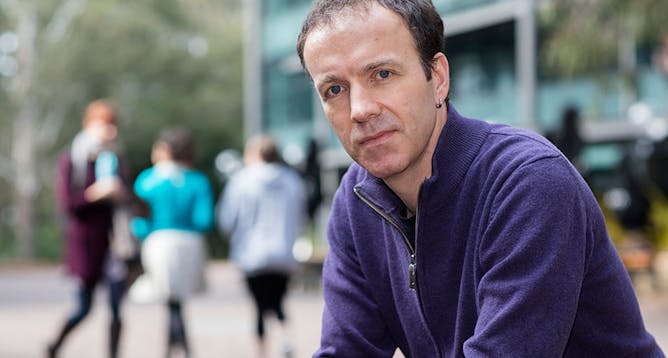|
Last Monday, a Boeing 787-9 Dreamliner en route from Sydney to Auckland “just dropped” as it cruised through the air, hurling unsecured passengers towards the ceiling and injuring at least 50. It’s unclear what caused the incident, but the plane recovered quickly and the rest of the flight was uneventful.
The bumpy ride was the latest in a string of unfortunate events surrounding the US aerospace titan, from an emergency door panel flying off a plane in January to a dramatic engine fire and the unscheduled jettison of a tyre during takeoff. And that’s before we get to the conspiracy theories around the apparent suicide of a former Boeing employee turned whistleblower, who alleged the manufacturer had cut corners to save money.
What’s a poor traveller to make of it all? According to aviation expert Doug Drury, not too much. While Boeing has faced some quality assurance concerns, it appears to be acting to address them – and most of the high-profile incidents are more likely due to poor maintenance and human error than to issues on the manufacturer’s part.
And as for the bumpy ride: Drury notes in a separate article that the plane’s safety systems seemed to cope with the incident well, and that the best thing you can do as an aircraft passenger is listen to the cabin crew and – yes – fasten your seatbelt while seated.
|

|
Michael Lucy
Science Editor
|
|

Doug Drury, CQUniversity Australia
The American aerospace company Boeing has been synonymous with safe air travel for decades, but recent weeks have seen it plagued by a series of issues.
|

Doug Drury, CQUniversity Australia
It’s unclear exactly what happened to violently shake up LATAM flight 800, but the moral for passengers is clear: wear your seatbelt.
|
Best reads this week
|

Ari Mattes, University of Notre Dame Australia; Alison Cole, University of Sydney; Bronwyn Carlson, Macquarie University; Harriette Richards, RMIT University; Tom Clark, Victoria University
From the red carpet to the winners and the speeches, our experts dissect the 2024 Oscars.
|

Anastasiya Byesyedina, University of Sydney
Ukrainians are safeguarding their language and cultural identity in the face of Russian attempts to erase it.
|

Naomi Smith, University of the Sunshine Coast; Amy Clarke, University of the Sunshine Coast
Rumours are out of control following the Kate Middleton photo controversy. It seems the royal family’s PR train is running off its rails.
|

Kath Kenny, Macquarie University
Erica Jong’s 1973 novel about one woman’s sexually daring search for freedom changed lives, and sold around 35 million copies. Though her racism now shocks, much of the book speaks to our moment.
|

Susan Davis, Monash University
Here’s what the evidence says.
|

Julia Kindt, University of Sydney
What makes us human? Greek and Roman thinkers were preoccupied with this question. And some of their observations of animals foreshadowed recent findings in the behavioural sciences.
|

Lizzie Speechley, The University of Western Australia
Magpies are expert problem-solvers – but just how good they are seems to depend on the size of the social group they grow up in.
|
Podcasts
|

The Russian president’s embrace of conspiracy theories has moved them from the fringe to the mainstream.
Maxim Shipenkkov/EPA
Gemma Ware, The Conversation
Russian disinformation expert Ilya Yablokov tells The Conversation Weekly podcast about the president’s shifting relationship with conspiracy theories.
|

Professor Michael Flood/QUT Centre For Justice
Michelle Grattan, University of Canberra
We're joined by Michael Flood, professor at the Queensland University of Technology to discuss the harassment against women in boys only schools and what leads to some men and boys to mistreat women.
|
Our most-read article this week
|

Evangeline Mantzioris, University of South Australia
Researchers gave people in the study 5, 10 or 15ml doses of apple cider vinegar and found they lost more weight than those taking a placebo. But the findings need a closer look.
|
In case you missed this week's big stories
|
-
Matthew Sussex, Australian National University
Vladimir Putin faces token opposition in the polls this weekend after his regime has viciously cracked down on opposition figures. He’s likely to be even more repressive in his next term.
-
Giselle Natassia Woodley, Edith Cowan University; Lelia Green, Edith Cowan University
New research shows how current messages to ‘simply avoid’ sexting do not work for young people.
-
Hal Swerissen, La Trobe University
Rather than bold reforms that will safeguard Australians’ aged care services into the future, the taskforce largely recommends tidying up and keeping the status quo. And getting users to pay more.
-
Ameeta Jain, Deakin University
Australia builds only 45,000 new homes per quarter. If we really want to fix the rent crisis we’ll have to build more.
-
Marilyn Campbell, Queensland University of Technology; Elizabeth J Edwards, The University of Queensland
Our study suggests the evidence for banning mobile phones in schools is weak when you look at the impact on academic results, student wellbeing and cyberbullying.
-
Catherine Fitzpatrick, UNSW Sydney
Insurance is supposed to be a safety net, but it can be weaponised in domestic and family violence situations. There’s a lot we can do to better protect victim-survivors.
-
Amalendu Misra, Lancaster University
Haiti is descending into anarchy, causing the gang leader behind the violence to emerge as the country’s most powerful leader.
-
Taylor Brydges, University of Technology Sydney
We know fast fashion is bad for the environment. Ultra-fast fashion makes matters worse. This disturbing trend towards disposable clothing is the opposite of sustainable. Here’s what must be done.
-
Nicole Lee, Curtin University
One report says methamphetamine use is rising. Another says it’s falling. So what’s going on?
|
|
| |
|
|
|
Aeon Media Group Ltd
Melbourne VIC, Australia
•
Full Time
|

|
|
|
|
| |
| |

|
| |
| |
| |
Featured Events, Courses & Podcasts
|
View all
|
|
1 January 2023 - 7 October 2026
•
|

|
1 February 2023 - 25 November 2029
•
|

|
|
|

|
5 - 12 April 2024
•
Sydney
|

|
|
|
|
| |
| |
| |
| |
| |
|
|